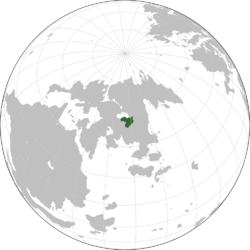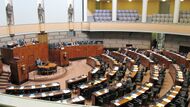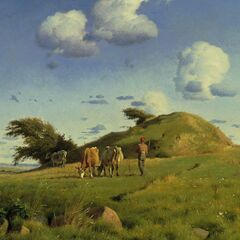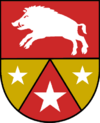Littland: Difference between revisions
mNo edit summary |
m (→Politics) |
||
| Line 171: | Line 171: | ||
{{colorbox|#ff9900|border=darkgray}} [[Freedom Party (Littland)|Freedom Party]] (62)<br/> | {{colorbox|#ff9900|border=darkgray}} [[Freedom Party (Littland)|Freedom Party]] (62)<br/> | ||
{{colorbox|#00ccff|border=darkgray}} [[Liberal Party (Littland)|Liberal Party]] (19) | {{colorbox|#00ccff|border=darkgray}} [[Liberal Party (Littland)|Liberal Party]] (19) | ||
'''{{wpl|Opposition (politics)|Opposition}} (163)'''<br/> | '''{{wpl|Opposition (politics)|Opposition}} (163)'''<br/> | ||
Revision as of 13:06, 20 October 2022
This article is incomplete because it is pending further input from participants, or it is a work-in-progress by one author. Please comment on this article's talk page to share your input, comments and questions. Note: To contribute to this article, you may need to seek help from the author(s) of this page. |
Republic of Littland | |
|---|---|
Motto: Frihed over alt Freedom above all | |
Anthem: I Lysets Lys In the Light of Light | |
 Location of Littland | |
| Location | Argis, Eurth |
| Capital and largest city | Kaslund |
| Official languages | Littish[1] |
| Recognised national languages | Malskic[1] |
| Recognised regional languages | Walnerian, Estimerian[1] |
| Ethnic groups (2018) | 74.3% Litts 22.1% Malsks 3.6% Other |
| Religion (2021) |
|
| Demonym(s) | Littish - Litt |
| Government | Unitary parliamentary republic |
• President | Morten Kristoffersen |
• Prime Minister | Albert Simonsen |
• Speaker of the Folkekammer | Inger Knudsen |
| Legislature | Folkekammer |
| Establishment | |
• Christianization | 1200 |
| 1527 | |
| 1910 | |
• Republic Proclaimed | 1913 |
• Current Constitution | 1986 |
| Area | |
• Total | 198,000 km2 (76,000 sq mi) |
| Population | |
• 2021 estimate | 21,254,000[2] |
• 2015 census | 21,631,000 |
• Density | 109/km2 (282.3/sq mi) |
| GDP (nominal) | 2021 estimate |
• Total | 420.83 billion AD$[3] (1,982.11 billion DAL) |
• Per capita | 19,800 AD$[3] (93,258 DAL) |
| Gini (2020) | medium |
| HDI (2020) | high |
| Currency | Daler (Đ) (DAL) |
| Time zone | UTC-1 (DIT) |
| Date format | dd-mm-yyyy CE |
| Driving side | right |
| Calling code | +08 |
| Internet TLD | .li |
Littland, officially the Republic of Littland, is a parliamentary republic located in Argis. Littland has an area of 198,000 km2 (76,000 sq mi) and has a population of a little over 21 million. Located near the Amber Lake, Littland borders Walneria in the south and Malskia and Estimeria in the west. Littland also has maritime borders with Baltica and Fina. Two rivers run though Littland, the larger Arup river in the east and the smaller Hinge river in the west. Kaslund is the nations capital, other major cities include Klinstrup, Aalhavn, Frankerup, Lerte and Halling.
Littland is a member of the Assembled Nations.
History
Early History
The first inhabitants of the area now known as Littland, were small and scattered populations living hunter-gatherer lifestyles between the years of 1000BCE and 100BCE. These people were eventually driven out by large migrations after 100BCE and 200CE, where the modern day Litts arrived in the area and settled the area around the Arup river and expanded from there over the next generations. Early Littish history starts around 350 as the first organized societies starts forming and borders are drawn between villages and their influences. Chieftans start getting more power and rule is centralized in many councils of elders. The largest settlement of this age was Vester Fabel, having an estimated 2,000 people at its peak in 560. Vester Fabel was destroyed following a conflict with the neighbouring Malska people in 600.
Christianization
In 1050 the Jarl of Kaslund, Einar The Great, consolidated his rule over the Arup river creating the Jarldom of Kaslund. Around this time, missionaries from the Ahranaian Empire started coming to Littland to spread the Orthodox faith. Einar was distrustful of the missionaries and they were persecuted along with their followers in the Jarldom of Kaslund. Upon the death of Einar, the Jarldom had grown and encompassed the majority of eastern modern-day Littland. By 1200 the Jarldom of Kaslund was renamed to the Grand Duchy of Tystrup, by Grand Duke Svend the Holy, the first Orthodox ruler of Littland.
Kingdom
In 1527 the Grand Duchy of Tystrup was granted Autocephaly and Svend III declared himself King of the Kingdom of Littland.
Constitutional Monarchy
Civil War and Reconstruction
Following the death of Helge III, Walter Nordskov becomes Regent of an interregnum government on 3 February 1910. Nordskov was openly and staunchly anti-socialist and begins to repeal workers rights and trade union protections as a constitutional was found that allowed such actions during a Regency as the King weren't there to approve/veto the action. Socialists across the country voice their disapproval and protests are organized in major cities. Trade unions declare a campaign for 'national solidarity' and strikes begin, until Nordskov reinstates worker and union rights. Tinghuset was stormed on on 9 April 1910 as socialists in Kaslund begin to march on Helge Square to protest against the governments repealing of workers rights legislation. The protest turns hostile as the protesters clash with police and shots are exchanged, leading to further violence and the protest turns into a riot. More radical elements of the protest rally around 600 people and march on Tinghuset. Around this time Regent Walter Nordskov is evacuated to Frankerup along with the government. Socialists successfully take control of Tinghuset and in total, 86 people die as a result of the clashes during the day. The following day, 10 April 1910, The Social Republic of Littland is declared as the revolutionaries take full control of Kaslund signaling the start of the civil war.
Modern Day
Geography
Located in Northern Argis, Littland covers an area of about 198,000 km2 (276,000 sq mi) characterised by rolling hills, rivers and lakes and flat farmland. The northern and central regions of Littland are wuite flat and mainly used for agricultural output, while the southern part becomes more hilly and uneven. Littland has a coastline along the Amber Lake to its north, which is dotted by smaller islands. The two largest rivers in the country are the Hinge and Arup rivers, both rivers have a connecting river system throughout Littland via lakes and small streams.
Climate
Littland has a temperate climate characterized by its proximity to Amber Lake to its north. Some of the more inland areas, especially Malskland has, on average, a slightly higher temperature than coastal regions. The country experiences cold winters, mild summers and a relatively stable weather pattern. Due to Littlands northern location there are large variations in daylight between seasons. The average precipitation is 662 mm a year. Climate change and other factors have changed the climate of Littland over the past couple decades. Winters are becoming increasingly drier with less snowfall and higher temperatures.
| Climate data for Littland | |||||||||||||
|---|---|---|---|---|---|---|---|---|---|---|---|---|---|
| Month | Jan | Feb | Mar | Apr | May | Jun | Jul | Aug | Sep | Oct | Nov | Dec | Year |
| Average high °C (°F) | −0.9 (30.4) |
−1.1 (30.0) |
2.7 (36.9) |
9.5 (49.1) |
15.6 (60.1) |
19.4 (66.9) |
22.4 (72.3) |
21.3 (70.3) |
16.2 (61.2) |
9.6 (49.3) |
4.1 (39.4) |
1.0 (33.8) |
10.0 (50.0) |
| Average low °C (°F) | −5.6 (21.9) |
−6.5 (20.3) |
−3.9 (25.0) |
0.9 (33.6) |
5.6 (42.1) |
10.2 (50.4) |
13.2 (55.8) |
12.5 (54.5) |
8.6 (47.5) |
3.9 (39.0) |
0.0 (32.0) |
−3.1 (26.4) |
3.0 (37.4) |
| Average precipitation mm (inches) | 49 (1.9) |
39 (1.5) |
35 (1.4) |
34 (1.3) |
42 (1.7) |
70 (2.8) |
67 (2.6) |
81 (3.2) |
58 (2.3) |
72 (2.8) |
61 (2.4) |
53 (2.1) |
661 (26) |
| Source: Littlands Meteorologiske Institut | |||||||||||||
Politics

Opposition (163) |
Littland is a parliamentary republic headed by President Morten Kristoffersen. The Government and main executive is lead by the Prime Minister, currently Albert Simonsen. Both of these are responsible to the countrys legislature, the 325 member Folkekammer which is elected through proportional representation every 4 years. Since the end of the Littish Civil War the Folkekammer has been dominated by two parties, the Christian Democratic League and the Social Democratic Party. Every Prime Minister since 1913 has been from one of these two parties. Since 1953 however, no party has secured an absolute majority and so coalition governments have become the norm.
Administrative divisions
The fundamental administrative division of Littland is the municipality. There are 253 in Littland, each with a municipal council consisting of 17 members elected every 4 years in local elections. In addition to municipalities, Littland has 16 counties with preside over several municipalities. County councils have 45 members and are elected along side local municipal councils. Two counties have special privileges. The county of Kaslund and the Malskland. Kaslund is the countrys capital and is effectively a municipality with the responsibility and council size of a county. The Malskland county is a special autonomous region, due to its large population of ethnic Malsks. The Malskland Assembly has 100 seats and has greater power over its municipalities, who have seperate local elections from the rest of Littland, although they still participate in parliamentary and presidential elections on the national level. The creation of the Malskland region was a key part of the County Reform of 2004.
Military
The armed forces of Littland, Forsvarsstyrken, is organized into Hæren (Army), Flåden (Navy) and Flyvevåbnet (Air Force) as well as Civilforsvaret acting as Home Guard. As of 2021, Forsvarsstyrken has a strength of 78,000 active soldiers. Conscription was abolished in 2006 and ever since Forsvarsstyrken has been volunteer based. Military spending has slightly increased under current Prime Minister Albert Simonsen, in power since 2016, with the stated goal of eventually reaching 6% before 2025 and modernizing the equipment of the Army.
Foreign Relations
Littlands foreign relations are managed by the Ministry of Foreign Affairs, currently lead by Foreign Minister Chris Clemensen. The country has only recently gone away from a previous isolationist stance in international politics and is establishing new embassies in the Diplomatic District of Verdenspladsen in the capital Kaslund. The country is a member of the Assembled Nations.
Economy
Demographics
Religion in Littland
Largest cities in Littland
2020 Census | |||||||||
|---|---|---|---|---|---|---|---|---|---|
| Rank | County | Pop. | Rank | County | Pop. | ||||
 Kaslund  Klinstrup |
1 | Kaslund | Kaslund | 2,890,422 | 11 | Lyndby | Fangel | 332,013 |  Aalhavn  Frankerup |
| 2 | Klinstrup | Klinstrup | 1,319,279 | 12 | Malbork | Malskland | 269,506 | ||
| 3 | Aalhavn | Aalhavn | 1,085,664 | 13 | Aadal | Aadal | 249,342 | ||
| 4 | Frankerup | Sønderland | 873,745 | 14 | Klarskov | Klarskov | 196,367 | ||
| 5 | Lerte | Guldberg | 619,294 | 15 | Milislev | Malskland | 180,302 | ||
| 6 | Halling | Halling | 583,109 | 16 | Karlino | Malskland | 159,704 | ||
| 7 | Stenmose | Varborg | 518,365 | 17 | Skinnerup | Solbjerg | 147,245 | ||
| 8 | Gistrup | Solbjerg | 498,590 | 18 | Fangel | Fangel | 134,290 | ||
| 9 | Rødskov | Rødholm | 443,503 | 19 | Alestrup | Rødholm | 118,984 | ||
| 10 | Tirslund | Tirslund | 364,628 | 20 | Mogilno | Malskland | 106,847 | ||
Religion
Health
Education
Culture
Art
Art in Littland has through the ages reflected Argic themes as well as culture at the time. Paintings have themes of folklore, Orthodox themes, realism as well as romanticism. In modern times, impressionist and post-modern paintings have also gotten national recognition. During the 19th century, considered the Golden Age of littish art, romanticism was a key feature of many paintings. The beauty of the natural landscape of Littland, the bravery of its people and the faith which it practiced, were prominent themes brought forth by artists such as Vilhelm Thorvaldsen (1822-1901) and Nicholai Albrecht (1803-1864).
Following the Littish Civil War (1910-1913), avant-garde and minimalist style paintings and art sprung forth following the death and destruction of the war. Scenes of rolling hills with small farms were replaced by the abstract faces of soldiers in a mental hospital. This would lead to many famous artworks that would get international fame, especially during the First Argic War (1949-1954). Painting has remained an important form of expression in Littland, painting classes are offered in schools and painting communities exist in most towns, although they are in decline.
Music
Littland has a wide range of folksong traditions. The most famous composer from Littland is Monrad Kirk (1821-1889) who is well remembered for his various pieces often used in modern media and theatre productions. Much of Littish classical music arose during the 18th and 19th century, were many composers wrote liturgical music as well as secular pieces. By the start of the 19th century, an active operatic scene had also developed, the first Littish opera, Højlande og Lavvande, premiered in 1812.
In modern times, pop as well as rock are the dominant genres in Littish music. Rock bands such as, Youngsten, Sort Stof and Krænket have gained some international fame, while the popstar Sofie Novack is a household name. The composer Jannik Lassen is well known for various movie soundtracks. Klintrup has a thriving jazz scene, dating back to the 1920's and is often called the music capital of Littland, due to the many festivals and concerts often hosted in the city. The largest festival in Littland is the annual Klintrup Festival, which had over 230,000 attendees in 2018.
A few Litts have gained international fame by being members of popular international bands and performance groups.
Media
Littish mass media started with the rise of newspapers and major publications in the late 19th century. Many political newspapers as well as the birth of tabloids and special publications saw Littland become one of the biggest consumer of newspapers in the wurld. Nowadays physical newspapers aren't as prominent but are still widespread and many town have at least some form of local newspaper. OPA Media owns many of the largest newspapers, such as Kaslund Tidende, Dagligdagen, Husbladet as well as the major tabloid Nu&Her. OPA Media also publishes many local newspapers around Littland and some consider the company a media conglomerate. Up until 1993, the public-service LTV was the only major television provider in Littland. Bravo Broadcasting has since challenged that position with channels and productions of their own, most notably the 2010 movie Mellem Brødre. A majority of radio stations are still operated by LTV. Bravo also hosts the most popular streaming service in Littland, BravoNetwork with almost 8 million users as of 2019.
Littland is also home to a vibrant video game industry, companies such as NordSoft has video game division and Noxu Game Studios is known wurldwide for their Tremendum series and the NoxuLauncher, which has over 12 million registered users at the end of 2021.
Sports
Sports are popular among the Littish population, with over half being part of some form of organized sport activity. The most popular sport by far however, is association football, with the 14 team EliteLiga at the head. Littland participates in the UENA Football league under the AFA, with the Littish National Football Team lead by captain Thorben Lind. Closely following as popular sports are, handball, gymnastics, golf, floorball and most recently basketball. Tennis and swimming is also particularly popular in the Malskland region.
Holidays
| Date | Name | Holiday | Notes |
|---|---|---|---|
| 1 January | New Year's Day | ||
| 6 January | Epiphany | ||
| movable Friday | Good Friday | The Friday before Easter Sunday | |
| movable Sunday | Easter Sunday | ||
| movable Monday | Easter Monday | The Monday after Easter Sunday | |
| movable Sunday | Pentecost | 50 Days after Easter | |
| movable Monday | Whit Monday | The Monday after the Pentecost | |
| 1 May | May Day | Not officially a national holiday, yet is treated as such | |
| 10 May | Remembrance Day | Celebration of the end of the Littish Civil War | |
| 11 July | Saint Svend's Day | National Day, celebrating Svend The Holy | |
| 24 December | Christmas Eve | ||
| 25/26 December | Christmas Day | ||
| 31 December | New Year's Eve |
External links
- Littland on NationStates
- Littland on the Eurth website
- Ministry of Foreign Affairs
- Littland News Network
References






